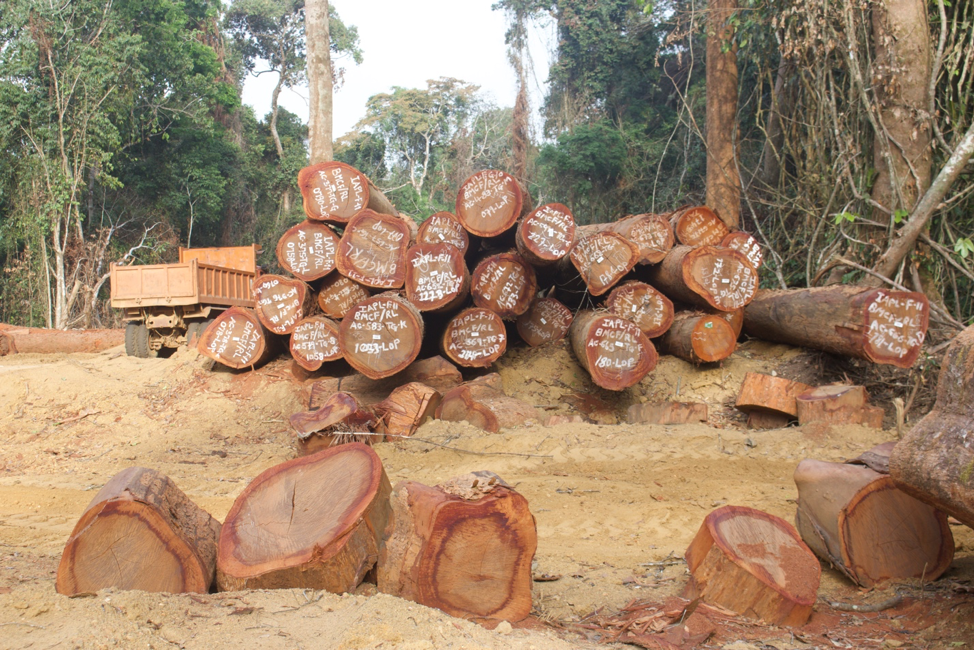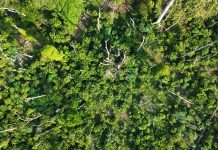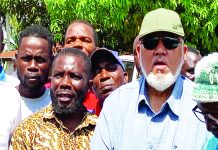Top: Newly felled and marked logs from the Bond Mandingo Forest in Gbarpolu County. The DayLight/James Harding Giahyue
By Henry Gboluma
BOPOLU, Gbarpolu County – A community forest leadership has cautioned county officials and residents to stay away from matters of the management of forest resources.
Recently, Joseph Akoi, Assistant Development Superintendent of Gbarpolu threatened to prevent Indo Africa Plantation Limited from transporting logs from the Bondi Mandingo Community Forest. Akoi demanded the Singaporean logging company pay the community its benefit before being taking logs it had felled there for shipment. The company owes the communities thousands of United States dollars and has yet to fulfill the commitment it made to help develop its towns and villages.
But making remarks at a daylong training organized by the forest governance program of the Sustainable Development Institute (SDI), Mark Dennis, the community forest management body (CFMB), said Akoi and King were interfering in community forest matters.
“Sometimes they want us to do something outside of the law, but we are finding it difficult to bend the law,” said Dennis. “We are recommending that our county authorities and some influential leaders in our communities be educated about the law.”
Dennis acknowledged the company has not fulfilled its promises made to the communities but warned interference could worsen the situation.
Residents have a say in community forestry but through recognized bodies.
The Community Rights Law of 2009 with Respect to Forest Lands empowers the community assembly—comprising representatives from villages affected by logging operations—the executive committee of the assembly and the CFMB Dennis heads to handle such matters. Neither Akoi nor King is a member of any of the groups.
If there is a conflict between a community and a company only the Forestry Development Authority (FDA) should intervene. In the case where parties to the dispute cannot resolve the matter goes to arbitration or to court.
The event Dennis spoke at was meant to train members of Bondi Mandingo, Korninga A, and Korninga B community forests, who have all had their share of conflict with logging companies. The gathering, which brought together representatives of the civil society, donors, and local leaders, also forms part of the Legal Foundation for Sustainable Forests and Livelihoods project for logging affected communities being implemented by the Sustainable Development Institute (SDI). Participants gained new skills in resolving conflicts, using the alternative disputes resolution (ADR) mechanism.
ADR is the procedure by which disputes are settled without litigation. These include arbitration, mediation, or negotiation. The method has been widely used to settle community disputes because it is less costly and yields a speedy outcome.
“We want to ensure that community forests are stronger and contribute more effectively to reducing deforestation, conserving biodiversity, and generating sustainable economic development in Liberia,” said Wilfred Gray-Johnson, the Executive Director of SDI.
“This is helping to increase community voices in forest governance by identifying and elevating them at the national level, while at the same time finding ways to solve them all together,” he added.





Facebook Comments